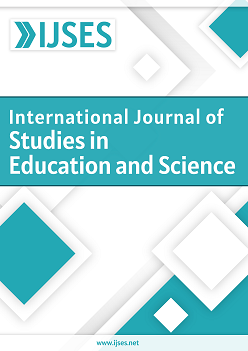Not everyone is the same: How Demographic, Contextual, and Instructional Factors Contribute to Mathematics Identity in Various Student Populations
DOI:
https://doi.org/10.46328/ijses.83Keywords:
Mathematics Identity, Conceptual Understanding, Instruction, High SchoolAbstract
Research suggests a positive mathematics identity is associated with increased achievement and engagement in mathematics. However, previous large scale research on mathematics identity has examined students as a homogeneous group, ignoring differences that may exist due gender, race, or ability level. Additionally, research examining conceptual instruction has focused on the effect it has on achievement, but not on the way it improves identity. This study addresses these two gaps by examining the contribution conceptual instruction makes to the mathematics identity of students and how that contribution differs when considering race, gender, and achievement. This secondary analysis of survey data from the High School Longitudinal Study of 2009 uses multiple regression to investigate the relationship between conceptual instruction and mathematics identity in a sample of over 23,000 ninth graders. I divided the sample by achievement level to look for different relationships between samples of low and high achieving students across the United States. Findings show that conceptual instruction positively contributes to student mathematics identity and reveals race to be a significant moderator in this relationshipReferences
Miles, S.J. (2024). Not everyone is the same: How demographic, contextual, and instructional factors contribute to mathematics identity in various student populations. International Journal of Studies in Education and Science (IJSES), 5(2), 168-181. https://doi.org/10.46328/ijses.83
Downloads
Published
Issue
Section
License
Articles may be used for research, teaching, and private study purposes. Authors alone are responsible for the contents of their articles. The journal owns the copyright of the articles. The publisher shall not be liable for any loss, actions, claims, proceedings, demand, or costs or damages whatsoever or howsoever caused arising directly or indirectly in connection with or arising out of the use of the research material.
The author(s) of a manuscript agree that if the manuscript is accepted for publication in the International Journal of Studies in Education and Science (IJSES), the published article will be copyrighted using a Creative Commons “Attribution 4.0 International” license. This license allows others to freely copy, distribute, and display the copyrighted work, and derivative works based upon it, under certain specified conditions.
Authors are responsible for obtaining written permission to include any images or artwork for which they do not hold copyright in their articles, or to adapt any such images or artwork for inclusion in their articles. The copyright holder must be made explicitly aware that the image(s) or artwork will be made freely available online as part of the article under a Creative Commons “Attribution 4.0 International” license.

This work is licensed under a Creative Commons Attribution-NonCommercial-ShareAlike 4.0 International License.





